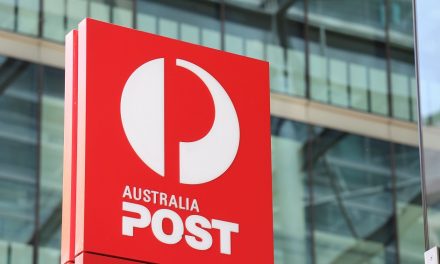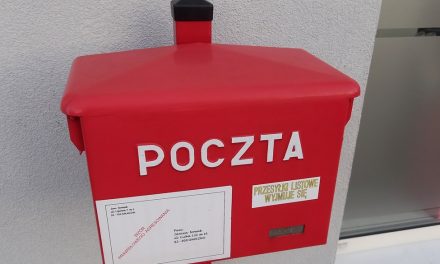
Hybrid Mail to Form Part of UK Postal Market
Recent evidence put forward in a 'Mail Trends' document written by Fouad H. Nader (Adrenale Corporation) and Michael Lintell (Pitney Bowes), suggests that those with internet access are actually likely to send and recieve more mail than someone without internet access. Much of the content is given over to U.S. examples but it does underline a growing fall in mail volume just about everywhere. However, competition has also helped 'ease' the downturn in profitability of many state-owned postal operators in liberalized markets, even if the 'face value' of such mail is less than ordinary stamped mail. This is particularly true of DSA (downsteam access).
It would be fair to say though, that the internet has put pressure on postal operators with all of us making the most of email, but there is also some evidence to suggest that 'hybrid' mail is where traditional post, and the internet, can actually work well together. The technology to combine the two is already here, but it does rely, in most cases, on a relay approach to delivery – as we discovered.
At the moment theres a real battle going on for this desktop postal service market and certainly the print industry are keen to grab a slice. If you're not familiar with 'hybrid mail' (and each system is slightly different from the next), essentially you type a letter or prepare a document on your PC and instead of printing it, you send it encrypted, to another company who unencrypt it, print it for you, stick it in an envelope and arrange for it to be posted.
Firstly, its not actually a new idea and it isn't aimed at the domestic market. The French and the Australian postal services have been offering it as a service for the transit of documents for some time, even Spain has a system – Correo Digital, but now the print industry is moving in on the idea, with additional features to make it more attractive to business. Whether there is actually enough demand to keep them all in business is another matter, but like double-glazing, the sales pitch is awash with references to 'the environment' and 'carbon footprints' to help sell the idea. With EU pressure now being exerted on large organisations to reduce waste and any enviromental impact, it all falls rather neatly into the laps of creative marketers trying to promote these systems.
What isn't clear from the sales literature is just how much the 'carbon footprint' is being reduced. One could almost say it was vague. For one thing, Royal Mail will still be delivering most of it and hybrid mail is basically fed into RM's postal network either through third-party, or direct access agreements, and unless each system has print shops in just about every city in the UK, some mail could actually end up travelling further than it would if it were dropped into the nearest post box – it isn't easy to ascertain. Naturally each player is quick to point out that their infrastructure is superior to everyone else, as indeed they might, but they all tend to hold their cards very close to their chests when pressed on exactly where all this mail will be printed and despatched from. Lets face it, if you're a new player, scalability is key but you have to start somewhere and it isn't going to be profitable without good old DSA anyway, unless you're big enough at the outset to cut a deal with Royal Mail.
There are quite a few around including Viapost, TNTit, I-Mail, Vendigo Hybrid, Printsoft, and PDQit, plus other systems owned by postal operators that have for the most part, sat on the back-burner or are still being developed. All of them seem to be on some kind of 'pay as you go' basis too, using 'free to download' software. I imagine it will only be matter of time before all these software packages becomes subject to advertising messages through subsequent upgrades too – such is the nature of upgrades. Cynical? Perhaps.
Viapost, which has yet to launch officially, sent out press releases in September last year. It has been fairly quiet since but when we approached them this week, they seemed completely unruffled by rival PDQit's recent press release and launch, and were confident that they have a far more robust infrastructure.
The Viapost website proudly proclaims that "Print Over Internet Protocol (POIP) is the Future of Post." Simon Campbell, CEO at Viapost says: “The SME print at the moment is done on a desktop printer, within an office. All of that is now going to come through us into the industrial print side.”
I-Mail is the one being used by UK Mail (better known as Business Post). The difference perhaps is that they already have downstream access so the hops may be that little bit shorter, but otherwise we could find no examples of cost savings on their website. UK Mail do say that their prices start at less than the price of a first class stamp though, and include all stationary and printing costs.
On the surface they all seem simple enough, but there do seem to be some potential weaknesses – mainly in terms of the routes involved. For example, PDQit is using TNT as it's downstream access, so thats FOUR hops already – from PC to PDQit to TNT to Royal Mail to destination, and although the first stage is encrypted, after that the mail faces all the same hazards as everyone elses – and possibly more machinery involved that items could slip down the back of . You could be forgiven for wondering whether it was not more environmentally friendly to just pop it into the nearest postbox, and with so many hops, the chances of items going astray would seem to be increased.
You just have to bear in mind that this is all aimed at bulk mailers looking to slash their mail budget. For now, whilst the environmental angle might seem attractive, without testing, it is difficult to quantify. No, the biggest driving force is likely to be monetary savings on paper and ink. Its as well to point out too, that most paper is made from replenishable sources these days so any images of trees should be treated with some scepticism – if you had any rosey-eyed vision of protecting landscapes that is.
Business does like savings though, and any reduction in the cost of bulk mail is likely to be seized upon. or at least looked at carefully, but the claim that such systems really do reduce the carbon footprint are difficult if not impossible to verify in every instance. Yes there would be savings in moving less stationery around (and potential losses for small office supply companies), but the 'hops' involved in hybrid mail could actualy be bigger still.
In any event, this feels rather like the battle between VHS and Betamax and ultimately only a couple are likely to be the dominant players but they all face the difficult hurdle of marketing. Just how do you get enough businesses to sign up without a marketing budget the size of the national debt? And how do you ensure that if your system, network, operation, takes off, you have the power to deliver?
Michael Mackay at Courir, which advises businesses on ways to reduce their mailing expenditure, said that there were still some questions but the service offering, for some mailers at least, has some merits:
Over all, we feel that hybrid mail could be a useful service for some, but some companies could get better deals working directly with Royal Mail and without knowing the true cost, the location setup of the print houses, and how many 'hops' are in the chain, it is difficult to know how real the gains are, or indeed just how 'green' they are.












